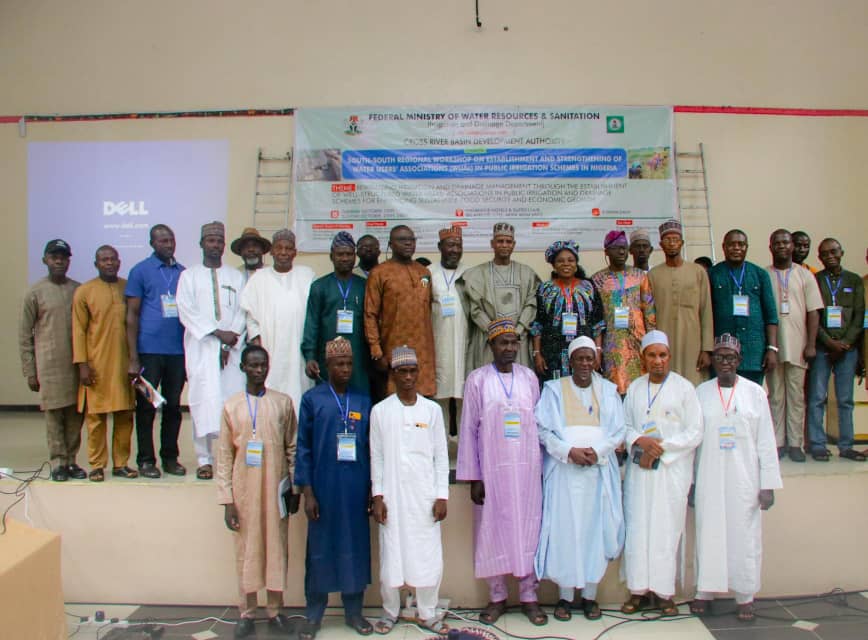By Stella Odueme
The Minister of State for Water Resources and Sanitation, Bello Muhammad Goronyo, Esq., has reaffirmed the Nigerian Government’s commitment to strengthening Water Users’ Associations (WUAs) in public irrigation schemes as a critical step towards achieving food security and economic growth.
Speaking at the South-South Regional Workshop on the “Establishment and Strengthening of Water Users’ Associations (WUAs) in Public Irrigation Schemes in Nigeria,” in Uyo, Akwa Ibom State, on Friday October, the Minister of State emphasized the importance of participatory water management in sustaining the nation’s irrigation infrastructure.
A statement by the Director Information and Public Relations,
Mrs Funmi Imuetinyan said that the Minister highlighted the key role irrigation plays in addressing food insecurity, boosting economic growth, reducing poverty, and empowering youth under President Bola Ahmed Tinubu’s Renewed Hope Agenda.
He stressed that sustainable food production and national food security cannot be achieved without effective water management and active involvement of water users, which makes the establishment and strengthening of WUAs essential.
“The success of the World Bank-sponsored Transforming Irrigation Management in Nigeria (TRIMING) project, particularly in WUA development, demonstrates the importance of a well-structured institutional framework for irrigation management. Public irrigation schemes under the TRIMING project have seen WUAs taking ownership of the schemes, protecting infrastructure, paying water service fees, and maintaining the systems for enhanced agricultural productivity,” said Goronyo.
He underscored the need to replicate the success of TRIMING in other public irrigation schemes across the country, noting that the sustainability of these schemes is essential for achieving the administration’s food security objectives.
“This workshop is timely, aligning with the efforts of the Federal Ministry of Water Resources and Sanitation to support the broader mission of this administration in ensuring food security and economic growth. Well-structured WUAs are essential to the sustainability of irrigation systems, and in turn, to food production and economic prosperity in Nigeria,” he maintained.
He commended the Director of Irrigation and Drainage, Federal Ministry of Water Resources and Sanitation, Engr. Mrs. Oyeronke Oluniyi for her dedicated efforts in promoting irrigation and for organizing the Workshop.
He also extended his appreciation to the resource persons, discussants, and participants for their valuable contributions, urging them to continue sharing knowledge and collaborating on actionable solutions to strengthen WUAs across the nation.
The South-South Regional Workshop provided a platform for stakeholders to discuss strategies for WUA development and identify best practices to ensure the sustainability of Nigeria’s irrigation schemes.
Participants from the region, including government officials, water resource managers, and WUA representatives, engaged in extensive deliberations to promote effective water resource management and food security.



